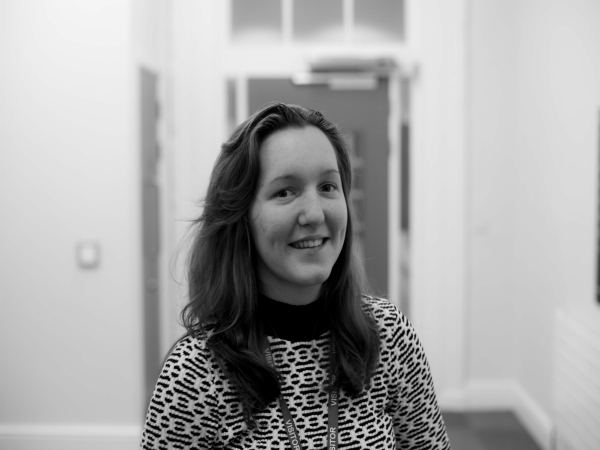
By Amy-Jo Mook
Everybody has aspirations.
Aspirations are especially vital to the survival of children and young people in care. They begin to rebuild a child or young person’s hopes and allow them to rightly feel like controllers of their own destiny. Control and hope are the feelings that children and young people in care often feel they have lost when professionals are making decisions in a child or young person’s ‘best interests’.
Children and young people in care often have low aspirations because of the low self esteem that is forced upon them through negative statistics and labelling. I have myself often felt powerless, like a puppet with no purpose or desires of my own.
Positive role models
But positive role models are the solution to raising aspirations and improving outcomes. They are like bamboo sticks supporting the plants to grow. They encourage us to want to become better versions of ourselves.
I have met some prolific role models through the Aspire To More project. This has been produced by Inspired Youth, funded by a small grant from the Joseph Rowntree Foundation York Committee, and created in partnership with Show Me That I Matter (SMTIM), York’s Children in Care Council. It has introduced young people in care, like me, to inspirational care leavers, including author and Community Care columnist Jenny Molloy and writer Paolo Hewitt, who we interviewed about their life journeys.
The project tackles the issue of care leavers achieving less head on. It counter argues the statistics with examples of care leavers who have gone on to achieve greatness. These people are positive role models because they show us that despite all of our pressures and obstacles, we do not have to crumble.
These role models show that children and young people in care are bursting with potential because we have been strengthened by our pasts, been shown the world before our time.
Making us masters of our world because we already know what the game is about. They show us that failure is a choice.
One of the positive role models interviewed through the Aspire To More project, Luke Rodger, says: “I actually realised the power of stories could really change the way people think and help other young people.” That is what the Aspire To More project is, sharing stories to make a difference.
Only children and young people in care can really challenge the negative statistics and labelling wrongly forced upon them by showing the world that there is more to us than being kids in care. But one must first raise our aspirations.
No matter who you are, if you interact with a child or young person in care you can help them.
By demonstrating to them that you ignore whatever has been written about them and that you see them for their potential rather than the obstacles they face. You can change a life by being that crucial role model.
‘Everyone is a potential role model’
Just like everyone in a local authority is a corporate parent, everyone is a potential role model. Inspire greatness in others by simply listening and attempting to make their dreams a reality no matter how wild. Like another role model in the Aspire To More project, Paolo Hewitt, says when telling a story about his teacher:
“Even if they want to fly to the moon, they should encourage it. I always remember how she made me feel. I don’t care how mad the dream is, it should always be encouraged, especially for kids in care.”
Give us back our dreams by lifting us up to the moon.
Amy-Jo Mook is a member of the Aspire To More project and Show Me That I Matter, York’s Children in Care Council.


 Assistive technology and dementia: practice tips
Assistive technology and dementia: practice tips  A trauma-informed approach to social work: practice tips
A trauma-informed approach to social work: practice tips 




 Find out how to develop your emotional resilience with our free downloadable guide
Find out how to develop your emotional resilience with our free downloadable guide  Develop your social work career with Community Care’s Careers and Training Guide
Develop your social work career with Community Care’s Careers and Training Guide  ‘Dear Sajid Javid: please end the inappropriate detention of autistic people and those with learning disabilities’
‘Dear Sajid Javid: please end the inappropriate detention of autistic people and those with learning disabilities’ Ofsted calls for power to scrutinise children’s home groups
Ofsted calls for power to scrutinise children’s home groups Seven in eight commissioners paying below ‘minimum rate for home care’
Seven in eight commissioners paying below ‘minimum rate for home care’
 Facebook
Facebook X
X LinkedIn
LinkedIn Instagram
Instagram
Well I am someone who was in the care system all of my childhood. I am not a mental health nurse. Have a successful family and work life. Everyone has potential x
I too spent the majority of my life in care.. . Also facing much discrimination and ill conceived judgements about me..having had various social workers who changed more frequently than i care to mention, i vowed i would never be a social worker…ive now been qualified since 2000 and know the positive impact I’ve been able to have with the yp I work with…unconditional positive regard is what each child deserves and should get…being interested in them and being supportive is what really matters to a child and i use my experiences of being in care both with the children i work with as appropriate and also in the multi agency training i deliver to ensure the voice of the child is central to everything that we do…..we have a responsibility to be good role models as corporate parents and apply the same standard as if it were my own child i was advocating for.